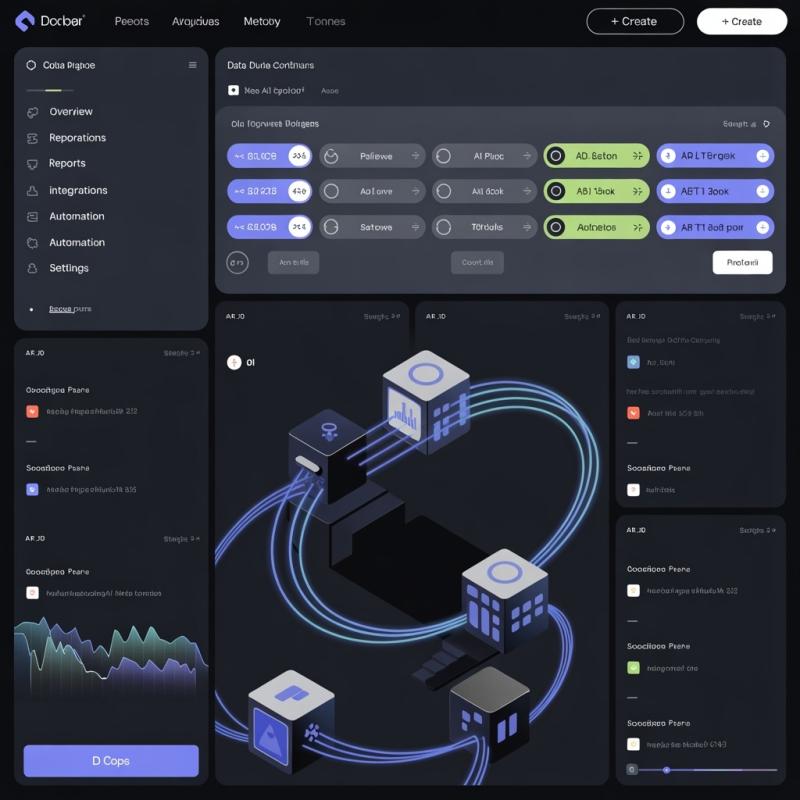How Are Shareholder Meetings Changing and What Does It Mean for Corporate Governance

A new OECD report on shareholder meetings and corporate governance sheds light on recent evolutions in shareholder meetings in 50 economies, with case studies on the Netherlands, Singapore, South Africa, Türkiye and the United Kingdom.
In a context of changing shareholder expectations and digital transformation, evolutions in shareholder meetings have important implications for corporate governance and shareholder engagement. While large institutional investors often engage year-round, for many investors, Annual General Meetings (AGMs) are the most important venue to influence corporate behaviour, including on executive remuneration, sustainability policies and corporate ethics.
The report identifies areas where regulatory frameworks for AGMs may need strengthening to fully protect shareholder rights, in line with the G20/OECD Principles of Corporate Governance.
Virtual and hybrid meetings are increasingly common
One of the most striking shifts has been the rise in virtual and hybrid meetings. Of the economies covered, 87% now allow virtual-only meetings. Most recently, Germany, Ireland and Hong Kong (China) have allowed them. Hybrid meetings are even more commonly accepted (94% of economies).
Figure 1. Legal and regulatory frameworks for remote participation

Source: OECD (2025), Shareholder Meetings and Corporate Governance: Trends and Implications, OECD Publishing, Paris. The data cover 52 jurisdictions.
This change is partly the result of growing shareholder activism and related security concerns in some markets, particularly for companies with a more contested sustainability impact. Protests during recent AGM seasons have often required stricter security measures, making virtual meetings more appealing for some companies.
At the same time, shareholders increasingly expect to have a voice in decisions about the timing and conditions for calling virtual meetings. As a result, clear decision-making on the holding of virtual-only meetings has emerged as an important issue for shareholder right protection and trust.
Still, a preference for in-person shareholder meetings remains widespread in some countries, such as Singapore and the United Kingdom. This means that while remote meetings are here to stay, in-person meetings will also continue to play a role in shareholder communication and corporate accountability.
Resolution, question and voting practices vary widely
Growing activism has also led to an increase in shareholder resolutions. However, while most countries set clear thresholds for share ownership and deadlines for the submission of resolutions before AGMs, criteria for admissibility and consideration of resolutions tend not to be well defined and may in some cases lead to legal disputes.
Rules for introducing new resolutions during AGMs vary substantially. In one-fifth of jurisdictions, unanimous shareholder consent is needed for new resolutions on topics not on the agenda, while in over a quarter of jurisdictions, only changes to topics already on the agenda can be proposed, often subject to low or no ownership thresholds.
Another area of divergence is the right to ask questions. In one-third of jurisdictions, the submission of questions by shareholders before meetings is not allowed. Frequently, even when this is allowed, there is no guidance on deadlines for submitting questions before meetings or on whether and how companies should answer them. Further, in many jurisdictions, companies do not have to answer all shareholder questions received during the meeting, whether during or after it.
Figure 2. Framework for questions submitted before AGMs

Source: OECD (2025), Shareholder Meetings and Corporate Governance: Trends and Implications, OECD Publishing, Paris. The data cover 50 jurisdictions.
Access to detailed meeting minutes is another important safeguard for shareholders. In three-quarters of jurisdictions, companies have to publish meeting minutes. However, it is much less common that they have to follow rules on minimum content. Recordings, webcasts and/or transcripts can complement minutes and improve shareholder confidence.
Regulatory guidance is expanding but gaps remain
The growing diversity of practices makes clear guidance for shareholder meetings increasingly important, and most regulators are stepping up: in nearly 60% of the economies, they have issued recommendations on shareholder meeting conduct.
Singapore and Türkiye stand out with detailed guidance that is well-regarded by both investors and companies. Companies are also contributing; for example, many Dutch companies publish their own policies and protocols for hybrid meetings.
Yet important gaps remain. Chairs are essential actors in shareholder meetings, but in most markets, there is little to no guidance on their responsibilities.
Often, allocating time for shareholder interventions, deciding how to group or address questions, and balancing in-person and virtual participation, is left at the discretion of companies. Again, Singapore’s guidance on chairing meetings shows how to set expectations for both companies and shareholders.
In many cases, voting rules could be improved
The record date deadline for shareholders to be registered and eligible to vote is set by law in 48 out of 50 markets and is typically set within seven business days. Setting it close to the meeting date can prevent outdated shareholders from voting and encourage more accurate participation.
Nearly two-thirds of jurisdictions do not restrict shareholders from selling, transferring or lending their shares after the record date to be able to vote. However, share blocking is still allowed in some markets or remains unregulated, potentially impacting liquidity and shareholder participation.
Further, cut-off dates for submitting proxy voting instructions before meetings are often left at the discretion of intermediaries, custodians and companies, and sometimes set very far in advance, limiting informed shareholder participation. Less than half of jurisdictions regulate cut-off dates and less than a quarter set them within one day of the meeting.
Figure 3. Record and cut-off dates frameworks

Source: OECD (2025), Shareholder Meetings and Corporate Governance: Trends and Implications, OECD Publishing, Paris. Data cover 50 jurisdictions.
Trust in the voting process also depends on vote counting and confirmation processes. However, only one-third of economies require the designation of an independent party to count and audit voting results, and less than half require end-to-end confirmation of voting.
Figure 4. Measures for vote counting
 Source: OECD (2025), Shareholder Meetings and Corporate Governance: Trends and Implications, OECD Publishing, Paris. Data cover 50 jurisdictions.
Source: OECD (2025), Shareholder Meetings and Corporate Governance: Trends and Implications, OECD Publishing, Paris. Data cover 50 jurisdictions.
Shareholder rights in remote settings are not consistently guaranteed
Finally, what recourse do shareholders have when they cannot access the meeting platform or experience a technical problem during the meeting?
Half of the jurisdictions do not have any legal safeguard for such cases, while the other half use a variety of approaches. In some, running the meeting effectively is the responsibility of the board; in others, it lies with the entity running the platform or directly with shareholders who chose to attend remotely. While digitalisation can support shareholder rights and engagement, safeguards are also needed.
Different approaches to shareholder meetings can work effectively, from a tightly regulated framework as in Türkiye to companies having discretion to manage most aspects of the meeting as in the Netherlands. What is essential is that efforts to balance shareholder rights and company efficiency considers market specificities.
The practices discussed in the report can provide guidance on different approaches, including areas in which some level of harmonisation already exists, and others where more convergence may be desirable.
So what do those shifts mean for corporate governance?
The future quality of corporate governance – including opportunities for shareholders to engage with and influence the directions of the companies they invest in – remains at stake as frameworks and practices for shareholder meetings continue to evolve. Important issues such as conditions for calling virtual meetings, voting frameworks, shareholder engagement through resolutions and questions, and the possibility for shareholders to effectively exercise their rights in remote settings, deserve continued attention.
The 2025 edition of the OECD Corporate Governance Factbook to be released on 6 October will provide new information on these issues and many others.
This post is subject to the disclaimer specified here
link




:max_bytes(150000):strip_icc()/startup-53e4843c1edb49dd99492d4cc9802e83.jpg)



